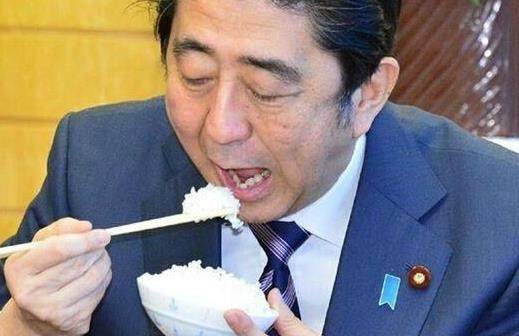People who always have one bite left to eat are very mature, because they are good at "self-impression management"
Saving food is the obligation of each of our citizens, and now the state is actively carrying out disc action to advocate that the public never waste a grain of food.
At home, parents will also teach their children from an early age to save food and eat all the food in their bowls. However, there is always a group of people in life who are used to having a mouthful left wherever they eat, and even if they are not full, they will not eat that mouthful of food.
If you ask them why they're doing this, you'll most likely get a response of "I'm used to it" or "It makes me feel more comfortable." So what kind of psychology causes them to behave like this?
In fact, from a psychological point of view, this problem is always used to the behavior of one bite left when eating, which is actually a mature performance. First of all, the act of always saving a mouthful of food when eating is socialized.
Mature is a psychological term in psychology that refers to the socialization process of an individual growing from infancy to adulthood.
Mature people are relatively more likely to integrate into society and behave in accordance with social norms and expectations, which can also be reflected in the meal.
First: impression management strategy
For example, at the gathering of some classmates and colleagues, you will find that everyone rarely eats all the food, there will always be a part left, and no one wants to be the last person to put down the chopsticks, and everyone will almost put down the chopsticks at the same time and start chatting.
This involves the concept of "impression management strategy (Impression management)", impression management refers to the fact that in interpersonal communication, people will always subconsciously control the formation of others' impressions of themselves, which belongs to a kind of self-impression protection, hoping that they can leave a good impression on others.
Specifically, no one wants to show their hungry appearance at the dinner table, which will not only give others a gluttonous image, but also make others think that you are not stable enough and elegant enough.
Second, no one wants to be the last person to finish eating at the dinner table, because we will try to avoid the embarrassing scene of being alone at a table where everyone else is watching.
According to the various behaviors of individuals at the meal, we can roughly judge a person's inner maturity, which is specifically manifested in whether the feelings of others will be considered at the meal and whether the performance during the meal is appropriate.
If a person only cares about himself at the dinner table and eats wildly, eats all the delicious things, and does not care about the feelings of others around him, then such a person must be immature in his heart.
Second: protect autonomy, a sense of control
The act of saving a mouthful of food is a basic behavior with self-protection initiative and a sense of control.
The cause of this behavior may stem from the fact that during an individual's childhood, parents always force their children to eat all the food in the bowl, regardless of whether the child's subjective wishes are willing or not. This compulsive behavior may inadvertently cause psychological trauma to the child.
When the child reaches adulthood, he will do things in the opposite way that his parents require, and use this behavior to make up for the psychological trauma of childhood.
Whether from the perspective of evolutionary psychology or from the perspective of developmental psychology, the behavior of always having a mouthful of food left at meal reveals a strong sense of control, and to a certain extent emphasizes that a sense of control is essential for human growth and development.
In this regard, the famous psychologist Brin proposed the "Psychological Reactance Theory", Brin pointed out that people need to have the right to control their own behavior, so when this right to control their behavior is limited, it often stimulates human resistance to ensure their rights and freedoms.
Therefore, the habit of leaving a mouthful at dinner in adulthood is most likely rebelling against the excessive restraints of their childhood parents, and they are trying to find their sense of control over their behavior in various ways.
Psychologists have also found that many people will reduce psychological struggles by forcing people around them to eat all meals, especially when eating together, there are always some people who like to persuade others to drink, sandwich vegetables and so on.
In fact, this kind of behavior will violate the "psychological boundaries" of others to a certain extent.
Therefore, many people do not like the behavior of others to add wine and vegetables, because these foods have been imposed on the will of others, and even delicious food will become tasteless.
Therefore, some people will have an uncomfortable feeling as soon as they participate in the meal, and their appetite is not good, and they will have one bite left when they eat naturally.
In summary, the behavior of always having a mouthful left when eating usually stems from the excessive control of the original family in childhood, and after adulthood, subconsciously wants to rebel against this lack of control, hoping to regain the right to control their own behavior in this way and seek psychological freedom.
